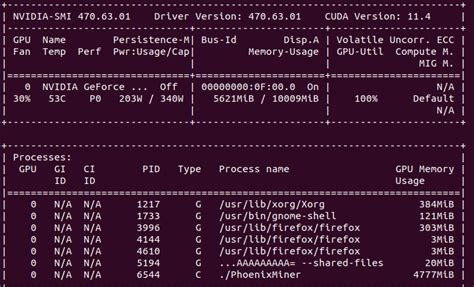- CRYPTOCURRENCY
-
by admin
Ethereum Websockets Problems with NODE.JS on the Ubuntu server
As projects to build developers linked to blockchain, it may be necessary to connect to binanchers using Node.js. However, if they face problems like Errno: -111 | Code: 1006 Econdrefuded is a decisive solution to connection problems.
Understand the error code
– Errno: -111 'indicates an error that occurred during the system system.
-Code: 1006 ECONDEFUDED ‘determines that the connection has been rejected by the server.
Steps of Ethereum websockets for node.js on the Ubuntu
server

Step 1: Install and define binance binockets
Before trying to connect, make sure you have installed Binance Websockets:
`Bash
Sudo Apt update
Sudo Apto installation Binance-Websocket-Clerk
'
Then define the connection to the Ethereum account:
Bash
Echo "username = your_ethereum_username" | Sudo Sed -i " / ^ Websocket_username / S / ^ \ (* \) / \ 1" / etc / bashrc
'
Replaceyour_ethereum_usernameusing your username Binance Websockets.
Step 2: Define the node.js environment
Make sure Node.js and NPM are installed:
Bash
Sudo Apt update
Sudo apt installation nodejs npm
'
Check the Node.js version by launching "node -v".
Step 3: Create a simple websocket connection in node.js
Create a new file called "server.js (or any other name) with the following code:
`Javascript
Const Websocket = require ('WS');
Const WSS = New Websocket.Server ({Port: 8080});
Wss.on ('connection', (ws) => {
Console.log ("Connected Client");
// Manage incoming customer data
Ws.on ('message', (message) => {
Console.log (message received from the customer: $ {message});
// Send the message received to all customers
Wss.clients.Foreach ((customer) => {
If (Customer! == WS && Customer.Readystate === Websocket.open) {
client.send (message);
}
});
});
// Manage disconnections
Ws.on ('close', () => {
Console.log ("disconnected client");
});
});
Console.log ("server launched on door 8080");
'
Step 4: Start the NODE.JS server
Start the server starting:
Bash
NODE SERVER.JS
'
Open the new terminal window and join your Binance web block with the WebSocket customer in Node.js using the following evening code (replaceyour_ethereum_username ‘using your real web -scientific username):
`Javascript
Const Websocket = require ('WS');
Const WSS = New Websocket.Server ({Port: 8080});
Wss.on ('connection', (ws) => {
Console.log ("Connected Client");
// Manage incoming customer data
Ws.on ('message', (message) => {
Console.log (message received from the customer: $ {message});
// Send the message received to all customers
Wss.clients.Foreach ((customer) => {
If (Customer! == WS && Customer.Readystate === Websocket.open) {
client.send (message);
}
});
});
// Manage disconnections
Ws.on ('close', () => {
Console.log ("disconnected client");
});
});
Console.log ("Successful Websocket Connection");
` ‘
Step 5: To solve connection problems
If you still have problems, make sure:
– The Binance Websockets username is correct.
– Your Ethereum account has a sufficient balance for gas costs to pay the WebSocket connection.
– Ubuntu Server has sufficient resources (CPU, memory and bandwidth) to process the WebSocket connection.
Conclusion
Problem solving with the connection of websockets in Node.js can be complex.
